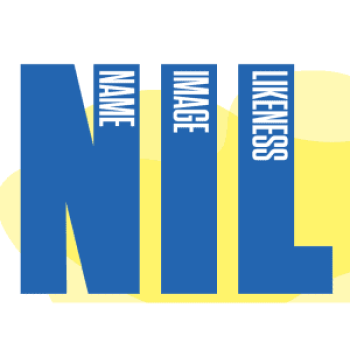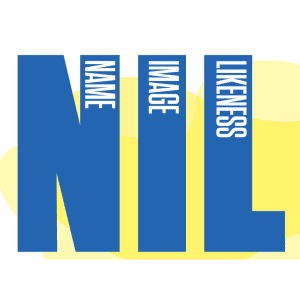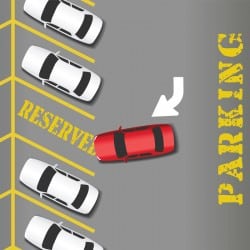In July 2021, the National Collegiate Athletic Association (NCCA) adopted rules which, for the first time, allow student-athletes to be paid for the use of their name, image and likeness (NIL) without jeopardizing their NCAA eligibility. “NIL collectives” are entities that have emerged out of this change. These entities operate independently from schools, yet fund NIL opportunities for student-athletes. They are typically established by well-known alumni and boosters to pool revenue from fans, businesses and other sources. They use these funds to facilitate opportunities for student-athletes to leverage their NIL in exchange for compensation.
Many NIL collectives have been structured as nonprofit entities which have sought and obtained 501(c)(3) public charity status from the IRS. These collectives usually partner with other charities to establish NIL opportunities for student-athletes. Under these arrangements, the nonprofit collective typically pays the athlete in exchange for his or her promotion of the partner charity through personal appearances, speaking engagements and social media, or through participation in sports clinics for community youth and the like.
This past year, the IRS announced that many NIL collectives structured as nonprofit organizations fail to qualify as tax-exempt entities. According to a generic legal advice memorandum (GLAM), many of these entities operate primarily for the private benefit of student-athletes, and thereby fail the “operational test” under Section 501(c)(3) of the Internal Revenue Code (the “Code” or “IRC”), which requires that tax-exempt organizations operate primarily for exempt purposes. As a result of the perspective shared in this GLAM, the IRS has begun denying NIL collective applications for tax-exemption, as reflected in two recently released IRS Private Letter rulings (the “Rulings”) (Private Letter Ruling 202414007 and Private Letter Ruling 202416015).
According to the IRS, the nonprofit NIL collectives described in these Rulings and in the GLAM further the following stated purposes: (i) providing opportunities for student-athletes to be paid for the use of their NIL, and (ii) contributing “to the greater good of the community” by raising awareness and support of their partner charities’ missions. This article includes further discussion of the regulatory obstacles these nonprofit NIL collectives are facing, and the implications for collectives operating with similar missions.
IRS Rules Governing Tax-Exempt NIL Collectives
In order to obtain and maintain tax-exemption under IRC Section 501(c)(3), an entity must be organized and operated exclusively for one or more of the exempt purposes set forth in IRC Section 501(c)(3), which may be charitable, educational or scientific in nature (Treasury Regulation Section 1.501(c)(3)-1(a)(1)).
As discussed above, to be regarded as “operated exclusively” for exempt purposes, an organization must be engaged “primarily” in activities which accomplish exempt purposes (Treas. Reg. Section 1.501(c)(3)-1(c)(1)). The presence of “a single nonexempt purpose, if substantial in nature, will preclude exemption regardless of the number or importance of truly exempt purposes” (GLAM, citing Better Business Bureau of Washington, D.C., Inc. v. United States, 326 U.S. 279 (1945)).
In addition, to be regarded as organized and operated exclusively for exempt purposes, an organization must serve a public rather than a private interest (Treas. Reg. Section 1.501(c)(3)-1(d)(1)(ii)). To meet this requirement, an organization must establish that it is not organized or operated for the benefit of private interests, including for example, designated individuals, the founders of the organization or their family, or persons controlled, directly or indirectly, by such private interests.
That said, private benefit will not prevent an organization from obtaining exemption if the private benefit is incidental in both a “qualitative” and “quantitative” sense.
The IRS has stated that to be “qualitatively incidental,” the private benefit must be a “byproduct” of the exempt activity or a “necessary concomitant” to the “accomplishment of the exempt purpose” (GLAM). A private benefit that is a “direct or intentional” benefit to designated or identifiable individuals would not be “qualitatively incidental” (GLAM).
To be “quantitatively incidental,” the private benefit “must be insubstantial in amount when compared to the overall public benefit conferred by the activity” (GLAM).
IRS’ Analysis and Conclusion Regarding Nonprofit NIL Collectives
According to the IRS, the nonprofit NIL collectives described in the Rulings and the GLAM operate primarily for the private benefit of student-athletes, in violation of the “operational test” under IRC Section 501(c)(3). The following are key factors that went into its determination. The IRS concluded that:
- Providing paid opportunities for student-athletes is a primary purpose of the nonprofit NIL collectives’ activities — which means these collectives serve a private, rather than a public interest.
- The private benefit to student-athletes is not “qualitatively incidental” to the collectives’ exempt purposes. This benefit is not a “necessary concomitant” to accomplishing their exempt purpose of supporting partner charities. According to the IRS, there “are alternative means by which you could promote local charities without conferring a substantial private benefit on these student athletes, such as by encouraging volunteerism” (Private Letter Ruling 202414007).
- The private benefit to student-athletes is not “quantitively incidental” when compared to the overall public benefit conferred by the collectives’ activities. In the GLAM, the IRS noted that many collectives pay 80 to 100 percent of all donations to student athletes. The IRS said, “for payouts anywhere within this range, the benefit to private interests is substantial by any measure and cannot be dismissed as merely incidental to [their] other purposes and activities” (GLAM).
- Student-athletes being paid by nonprofit NIL collectives are not themselves a recognized charitable class. The IRS noted in the GLAM that “absent a finding that NIL collectives select student athletes for participation based on need, such that their activities could be considered” as being “conducted for the relief of the poor or distressed, …payments to the student-athletes are properly regarded as serving private rather than public interests.”
The Future of Nonprofit NIL Collectives
As discussed herein, the IRS has begun denying tax-exempt status to some nonprofit NIL collectives for the reasons discussed above. For similar reasons, the IRS has indicated that it may reconsider the exempt status of nonprofit NIL collectives that have already been granted exemption (GLAM).1 These actions also have implications for donors, who cannot take a charitable deduction for contributions to nonprofit collectives whose exemption has been denied or revoked.
With the above in mind, it is critical for nonprofit NIL collectives to review the Rulings and the GLAM with counsel and ensure that their purposes and activities do not confer impermissible private benefits to student-athletes. Nonprofit NIL collectives should also consult with counsel on the pros and cons of converting to a more flexible legal form, including, for example, a for-profit limited liability company structure, which is not subject to limitations on the type of activities it facilitates.
1 However, the IRS has also noted that in reconsidering the exempt status of such collectives, it may be appropriate to grant relief under IRC 7805(b) to limit the retroactive effect of any such revocations.
- Perlman & Perlmanhttps://perlmanandperlman.com/author/nancyisrael/
- Perlman & Perlmanhttps://perlmanandperlman.com/author/nancyisrael/
- Perlman & Perlmanhttps://perlmanandperlman.com/author/nancyisrael/
- Perlman & Perlmanhttps://perlmanandperlman.com/author/nancyisrael/













